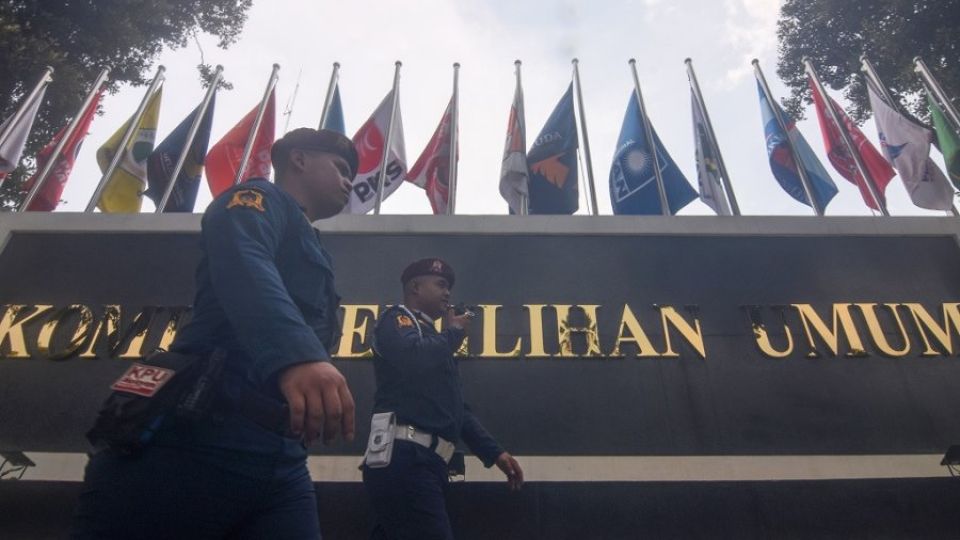September 18, 2023
JAKARTA – The controversial claim made by President Joko “Jokowi” Widodo that he has complete access to intelligence information concerning the internal affairs of every political party has sparked concerns of a potential abuse of power by state security agencies for his own personal gain.
Speaking at a rally on Saturday hosted by Seknas Jokowi, a group of volunteers who have been loyally supporting him since the 2014 presidential election, the President drew attention to his ability to access intelligence information about every move by political parties.
In a 25-minute speech, the President largely talked about the need for a leader who is “consistent” and has the ability to “garner public trust” in the three most important elections in 2024, 2029, and 2034 that will determine whether Indonesia can become a developed nation.
“I know the insides of political parties. I know what kind of parties [they are], I also understand which direction they are planning to go in. The information I have received from the intelligence is complete,” Jokowi said.
Boasting of his control over the State Intelligence Agency (BIN) and the intelligence departments of the military and the police, Jokowi suggested that he was well aware of the ongoing internal activities and what goes on behind the closed doors of every political party.
“Data figures, and surveys are all there. I have everything and they only belong to the President because [they] directly report to me,” Jokowi said.
Jokowi’s statements came against the backdrop of the coalition building by political parties ahead of the upcoming presidential election, in which the President previously stated he intended to interfere (cawe-cawe) in the name of the national interest.
The President is looking to play the role of a kingmaker for 2024 in his attempt to ensure the continuity of his flagship programs, including the new capital and a push toward onshore processing of resources such as nickel, bauxite and copper to turn Indonesia into a high-income nation by 2045.
Despite not controlling a political party of his own, Jokowi has made efforts to consolidate power around himself over the years, maintaining control over the governing coalition comprising seven political parties and commanding the loyalty of thousands of non-partisan die-hard supporters.
Criticisms
The remarks by the President on Saturday have drawn criticism from a group of civil society organizations, which raised the alarm over Jokowi’s potential misuse of intelligence agencies and called it “a serious problem” in a democracy.
The group includes the Commission for Missing Persons and Victims of Violence (Kontras), Indonesia Corruption Watch (ICW), Amnesty International, the Indonesian Legal Aid Foundation (YLBHI), Setara Institute and Imparsial.
It should not be permissible, the group stressed, for a president and his intelligence apparatus in the third-largest democratic country to make political parties the object and target of intelligence monitoring.
“In any democracy, political parties are not a threat to national security so it is hard to understand why intelligence agents are deployed to search for information regarding data, political direction and development of political parties,” the group said.
“Data and information collected by intelligence agencies must only be used for policy-making purposes, not misused to spy on political actors for personal political interests,” it added.
However, political parties themselves seemed not to be much bothered by Jokowi’s remarks, except the NasDem Party.
Masinton Pasaribu of the Indonesian Democratic Party of Struggle (PDI-P), of which Jokowi is a member, said “it’s logical for the President to know” intelligence information about political parties, while Golkar Party politician Dave Laksono said “it’s not unusual” for the President to have such information, kompas.com reported.
But NasDem politician Ahmad Ali said Jokowi “should have not said that publicly”, detik.com reported.
Election fever is already starting to grip the country, which will see some 206 million people cast ballots for the next president and vice president, as well as legislators and councilors at both national and regional levels on Feb. 14 next year.
With the General Elections Commission (KPU) planning to move the registration deadline for presidential and vice-presidential candidates to mid-October from late November, political parties have been intensifying talks to lock in coalition deals and settle on their presidential and vice-presidential nominees.
Former Jakarta governor Anies Baswedan and National Awakening Party (PKB) chairman Muhaimin Iskandar are currently the only confirmed pairing of what will likely be a three-way presidential race.
Two other presumptive candidates who have announced their plans to run for president next year, former Central Java governor Ganjar Pranowo of the PDI-P and Defense Minister Prabowo Subianto of the Gerindra Party, have yet to name their running mates.


